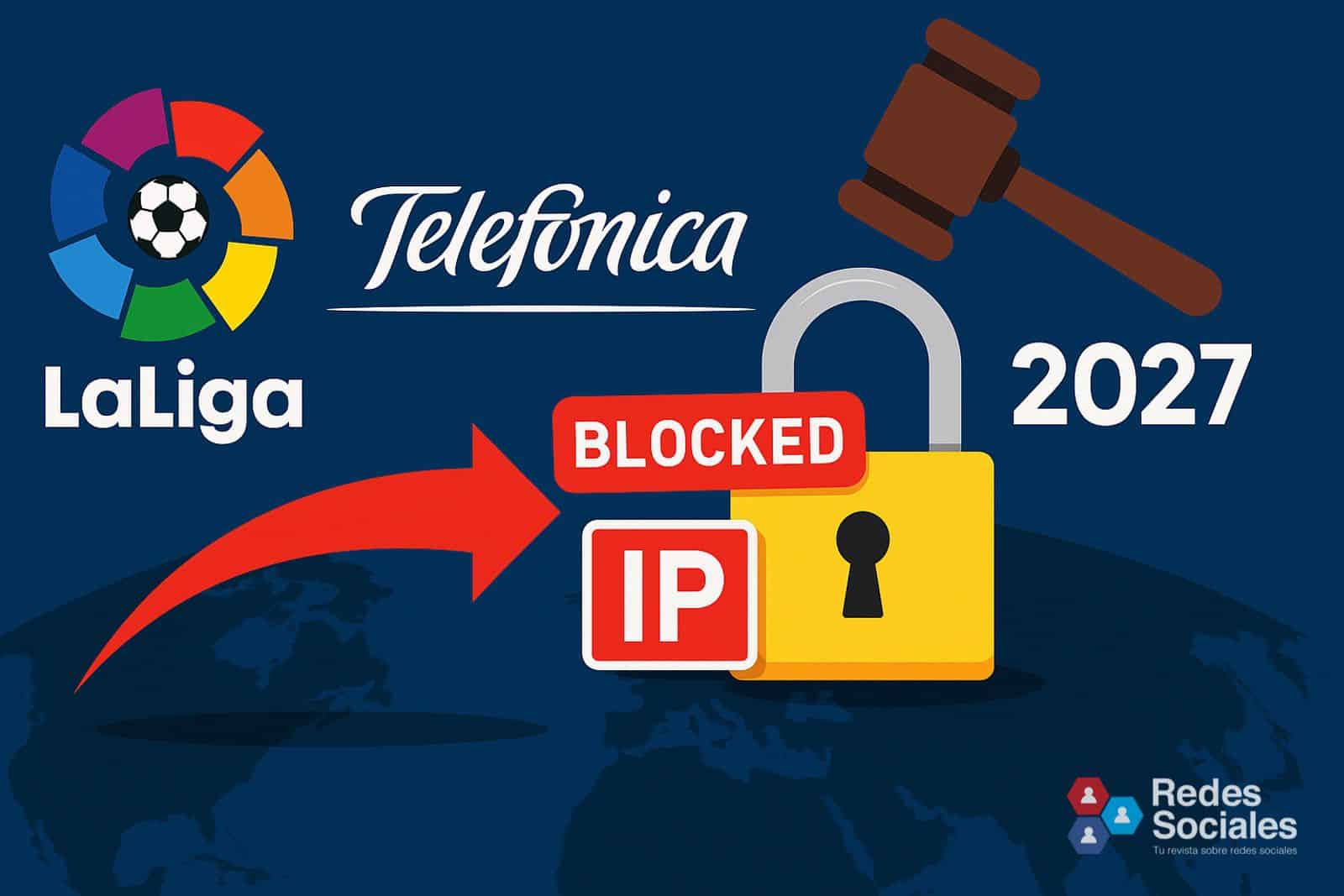The anti-piracy strategy of La Liga has escalated into a top political issue. After weeks of complaints from users, tech associations, and affected companies, Esquerra Republicana de Catalunya (ERC) has submitted a series of questions to the Congress of Deputies to clarify the scope of the IP address blocks ordered by the football governing body.
This is the second time Parliament has addressed this matter, following the initiative presented by BNG in May, which already accused the government of “neglect of duties” by allowing blocks that impact legitimate services.
—
A dangerous precedent for digital rights
ERC labels the phenomenon as “LaLigaGate” and warns that it sets a very concerning precedent: “a private company with the capacity to order massive blocks without sufficient democratic oversight or protections for fundamental rights.”
Documented complaints indicate that La Liga’s anti-piracy measures have not only affected illegal streaming websites but have also blocked legitimate platforms such as Steam, X (Twitter), official sites, and corporate pages, risking net neutrality and freedom of information.
For this reason, ERC demands that the state urgently establish a clear regulatory framework, with “proportional, transparent, and judicially supervised” criteria before implementing any blocking measures.
—
Questions to the government: regulation and oversight
The Republican parliamentary group questions the executive on several key aspects:
– Whether it plans to regulate private companies’ involvement in internet access control, ensuring that all blocks require a judicial order with limited scope and duration.
– The role of regulatory bodies, such as CNMC or the Secretary of State for Telecommunications, in supervising these blocks.
– Whether an administrative procedure for prior or subsequent control will be implemented to verify the legitimacy of each case.
– Reclamation or compensation mechanisms for businesses and users affected by erroneous blocks.
– The possible creation of a notification protocol between operators and stakeholders to prevent unexpected suspension of legitimate services.
—
La Liga’s response: “There are no mass blocks”
La Liga’s response has been swift and firm. The organization, led by Javier Tebas, denies that indiscriminate blocks are occurring and asserts that all measures are part of authorized, supervised judicial procedures.
“The falsehood that mass blocks of legitimate pages are happening,” the entity emphasizes. “The system is surgical and designed to target only illegal content, always documenting and preserving evidence of the infringement.”
Additionally, La Liga downplays social media complaints, claiming they refer to “non-existent websites, with no real traffic, or just a few dozen users per month.” According to the organization, these complaints are aimed solely at “creating a social alarm narrative.”
—
Cloudflare and shared IP addresses
A contentious point concerns the use of tech providers like Cloudflare, which host both legal and illegal sites under the same IP address. La Liga argues that this model acts as a “digital shield” for criminal activities, which might explain why some legitimate services are indirectly affected by blocks.
Their data suggest that over 51% of the pirate IPs distributing La Liga content utilize Cloudflare, demonstrating how this infrastructure is used to conceal illicit activities.
—
The cost of piracy in Spanish football
La Liga emphasizes that piracy is not a marginal phenomenon. Its figures indicate annual losses between €600 million and €700 million for clubs, representing half of the audiovisual income for 2022-2023.
Illegal consumption remains high in Spain:
– 33% of the population consumes pirated content.
– Among 15 to 24-year-olds, the figure rises to 42%.
– In Europe, during the first half of 2024, there were 5.3 million live pirate streams recorded.
—
Conclusion
The conflict between La Liga, internet users, and political parties has sparked a fundamental debate about the limits of anti-piracy efforts. While the football federation claims its measures are surgical and judge-approved, social groups and parties like ERC argue that the current system lacks sufficient safeguards and threatens fundamental rights.
The government will now need to respond in Congress, in a case that surpasses sports and becomes central to the debate on digital freedoms, technological regulation, and the influence of private companies online.
—
Frequently Asked Questions (FAQ)
– What is “LaLigaGate”?
It’s the term used by users and associations to refer to the IP address blocks carried out by La Liga in its fight against piracy, which allegedly also impacted legitimate websites and services.
– Why has ERC taken the case to Congress?
Because they consider the blocking system sets a dangerous precedent, giving a private entity the power to restrict internet access without sufficient democratic guarantees or judicial oversight.
– What is La Liga’s stance?
La Liga denies mass blocks and states all actions are part of authorized judicial procedures, with strict protocols and documented evidence of infringements.
– What impact does piracy have on Spanish football?
According to La Liga, piracy results in losses of €600-700 million annually, affects a third of the population, and is even more problematic among youth, threatening the sport’s economic sustainability.
Sources: EuropaPress and EuropaPress

